| | Mathison Museum of Natural History |  |
|
+15Caracal widukind lucky luke Megaptera rogerpgvg Jill sunny pipsxlch Saarlooswolfhound landrover Kikimalou Taos Duck-Anch-Amun Shanti Saien 19 posters |
|
| Author | Message |
|---|
widukind
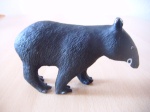
Country/State : Germany
Age : 48
Joined : 2010-12-30
Posts : 45745
 |  Subject: Re: Mathison Museum of Natural History Subject: Re: Mathison Museum of Natural History  Thu Jan 19, 2023 6:16 pm Thu Jan 19, 2023 6:16 pm | |
| |
|
  | |
Caracal
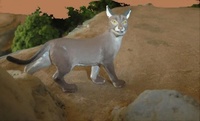
Country/State : France
Age : 65
Joined : 2018-10-24
Posts : 7252
 | |
  | |
bmathison1972
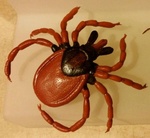
Country/State : Salt Lake City, UT
Age : 52
Joined : 2010-04-13
Posts : 6710
 |  Subject: Re: Mathison Museum of Natural History Subject: Re: Mathison Museum of Natural History  Fri Jan 20, 2023 12:36 pm Fri Jan 20, 2023 12:36 pm | |
| Species: Iguana iguana (Linnaeus, 1758) Common name(s): green iguana; common green iguana About the Figure: Manufacturer: CollectA Series: Wildlife Year of Production: 2022 Size/Scale: Figure approximately 13.5 cm across its widest dimensions. Snout-to-vent length 9.5 cm for a scale of 1:3.2-1:5.3 (see below) Frequency of species in toy/figure form (at time of posting): Uncommon Miscellaneous Notes: It's probably safe to say that at the time of this writing, this is the green iguana figure to get, as long as it's not too big for one's tastes. It's a similar scale to the Wild Safari figure from 2004 but larger than those by Schleich (2000; 2022). Based on the ratios, today's figure by CollectA is not sculpted with a tail with a length expected in an adult that didn't loose part of it at some point in its life (e.g., autotomy) and the scale above is calculated using snout-to-vent ratio rather than a total body length of about 2 meters. I had trouble finding more than one reference that agreed on the SVL for I. iguana, and most sites devoted to keeping iguanas as pets tend to exaggerate sizes (either that or captive iguanas grow larger than their wild counterparts). The above scale is based on an average SVL range of 30-50 centimeters, which encompasses several references. About the Animal: Geographic distribution: Central and South America, several Caribbean islands. Naturalized in southern USA (Texas, Florida), Singapore, Thailand, Taiwan, Hawaii, and several other Caribbean islands, including Puerto Rico and the U.S. Virgin Islands. Habitat: Rainforest, subtropical woodlands, swamps; arboreal and usually near water Diet: Leaves, fruit; occasionally invertebrates, carrion, bird eggs IUCN Status (at time of posting): Least Concern Miscellaneous Notes: Iguana iguana is an adaptable species and can easily become established in areas that do not seasonally freeze, such as the case for Florida, where the subtropical climate, abundant rainfall, expansive areas modified by humans, and numerous international ports of entry have allowed I. iguana to become an invasive species. The first documented I. iguana in Florida was in the 1960s, when an exotic pet dealer reportedly intentionally released more than 300 into the Miami area. Many people who buy baby iguanas as pets are not prepared to deal with them as they get larger and will release them into the wild; others escape on their own (as people who own adult iguanas often let them have the 'run of the house'). The negative risk of I. iguana in Florida has not been fully established. One potential risk is the lizards using burrows of native burrowing owls and gopher tortoises and potentially displacing those animals from their burrows. Another is that green iguanas like to feed on gray nickerbean ( Guilandina bonduc), which is one of the two primary host plants for the Miami blue butterfly ( Cycloargus thomasi), a federally protected species. The green iguana is also considered a general nuisance pest in Florida, eating flowers and fruit from gardens and ornamental plants and depositing guano on docks, moored boats, seawalls, porches, decks, and inside swimming pools. [You must be registered and logged in to see this image.]
Last edited by bmathison1972 on Fri Jan 20, 2023 3:29 pm; edited 1 time in total |
|
  | |
Caracal

Country/State : France
Age : 65
Joined : 2018-10-24
Posts : 7252
 | |
  | |
rogerpgvg
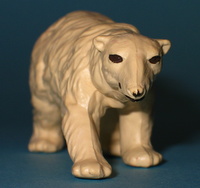
Country/State : UK
Age : 54
Joined : 2016-04-29
Posts : 3894
 |  Subject: Re: Mathison Museum of Natural History Subject: Re: Mathison Museum of Natural History  Fri Jan 20, 2023 6:20 pm Fri Jan 20, 2023 6:20 pm | |
| Beautiful model and great picture. The iguana looks real! |
|
  | |
landrover
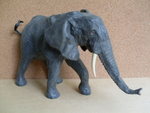
Country/State : colombia
Age : 66
Joined : 2010-11-04
Posts : 5890
 |  Subject: Re: Mathison Museum of Natural History Subject: Re: Mathison Museum of Natural History  Fri Jan 20, 2023 8:56 pm Fri Jan 20, 2023 8:56 pm | |
| |
|
  | |
Kikimalou
Admin
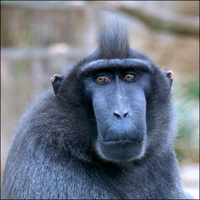
Country/State : Lille, FRANCE
Age : 60
Joined : 2010-04-01
Posts : 21168
 |  Subject: Re: Mathison Museum of Natural History Subject: Re: Mathison Museum of Natural History  Sat Jan 21, 2023 10:06 am Sat Jan 21, 2023 10:06 am | |
| I am delighted to know that you too have encountered difficulties in finding the plausible scale of this animal. What a mess ! Mine joined my 1/5 shelves.  |
|
  | |
widukind

Country/State : Germany
Age : 48
Joined : 2010-12-30
Posts : 45745
 |  Subject: Re: Mathison Museum of Natural History Subject: Re: Mathison Museum of Natural History  Sat Jan 21, 2023 12:57 pm Sat Jan 21, 2023 12:57 pm | |
| |
|
  | |
bmathison1972

Country/State : Salt Lake City, UT
Age : 52
Joined : 2010-04-13
Posts : 6710
 |  Subject: Re: Mathison Museum of Natural History Subject: Re: Mathison Museum of Natural History  Sat Jan 21, 2023 2:20 pm Sat Jan 21, 2023 2:20 pm | |
| Species: Protogoniomorpha temora (Felder & Felder, 1867) Common name(s): blue mother-of-pearl; eastern blue butterfly About the Figure: Manufacturer: Blip Toys Series: Nature's Wonders HD Year of Production: 2008 Size/Scale: Wingspan 9.0 cm for a scale of approximately 1.5:1-1.2:1 Frequency of species in toy/figure form (at time of posting): Unique Miscellaneous Notes: The wings on this figure are painted the same ventrally as they dorsally, which is not correct. The underside of the wings of P. temora resemble dead leaves, so the butterfly is camouflaged when resting on or near the forest floor with its wings closed. It also has six functional legs, which is also not correct for a member of the family Nymphalidae (a very common mistake among toy butterflies). About the Animal: Geographic distribution: Equatorial Africa Habitat: Rainforest, riparian thickets, disturbed forest, agricultural land Diet: Larvae feed on several plants in the family Acanthaceae, including Asystasia, Eremomastax, Justicia (water-willows), Mellera, and Mimulopsis; adults take nectar from flowers and nutrients from mud puddles IUCN Status (at time of posting): Not Evaluated Miscellaneous Notes: Protogoniomorpha has historically been considered a synonym of Salamis but was given genus-level status in 2005. There are two subspecies of P. temora, the nominate P. t. temora, which occurs throughout much of Equatorial Africa, and P. t. virescens, which is endemic to the Nguru and Uluguru Mountains of Tanzania. [You must be registered and logged in to see this image.] |
|
  | |
widukind

Country/State : Germany
Age : 48
Joined : 2010-12-30
Posts : 45745
 |  Subject: Re: Mathison Museum of Natural History Subject: Re: Mathison Museum of Natural History  Sat Jan 21, 2023 2:22 pm Sat Jan 21, 2023 2:22 pm | |
| |
|
  | |
bmathison1972

Country/State : Salt Lake City, UT
Age : 52
Joined : 2010-04-13
Posts : 6710
 |  Subject: Re: Mathison Museum of Natural History Subject: Re: Mathison Museum of Natural History  Sat Jan 21, 2023 2:57 pm Sat Jan 21, 2023 2:57 pm | |
| - Kikimalou wrote:
- I am delighted to know that you too have encountered difficulties in finding the plausible scale of this animal. What a mess ! Mine joined my 1/5 shelves.
 yeah, the hard part was finding reliable source(s) with snout-to-vent ratio! And those that agreed on a range! |
|
  | |
Kikimalou
Admin

Country/State : Lille, FRANCE
Age : 60
Joined : 2010-04-01
Posts : 21168
 |  Subject: Re: Mathison Museum of Natural History Subject: Re: Mathison Museum of Natural History  Sat Jan 21, 2023 3:33 pm Sat Jan 21, 2023 3:33 pm | |
| - bmathison1972 wrote:
- Kikimalou wrote:
- I am delighted to know that you too have encountered difficulties in finding the plausible scale of this animal. What a mess ! Mine joined my 1/5 shelves.

yeah, the hard part was finding reliable source(s) with snout-to-vent ratio! And those that agreed on a range! Indeed I had the same problem  You can read every kind of silly measurement on the web |
|
  | |
bmathison1972

Country/State : Salt Lake City, UT
Age : 52
Joined : 2010-04-13
Posts : 6710
 |  Subject: Re: Mathison Museum of Natural History Subject: Re: Mathison Museum of Natural History  Sun Jan 22, 2023 2:59 pm Sun Jan 22, 2023 2:59 pm | |
| Species: Tachybaptus ruficollis (Pallas, 1764) Common name(s): little grebe; dabchick About the Figure: Manufacturer: Kaiyodo Series: Capsule Q Museum - Biwako Year of Production: 2014 Size/Scale: Total figure height 4.0 cm. Scale difficult to calculate but total body length approximately 6.5 cm for a scale of 1:3.5-1:4.5 Frequency of species in toy/figure form (at time of posting): Very rare Miscellaneous Notes: Assembly is required and the bird is removable from its base. Kaiyodo also made this species for their Birdtales line. About the Animal: Geographic distribution: Old World, including most of Europe, much of sub-Saharan Africa and Madagascar, Central Asia, Indian subcontinent, East Asia south to the Philippines and New Guinea, and Japan Habitat: Heavily vegetated freshwater lakes and ponds, usually among reeds and other vegetation; more common in open and coastal water in the winter Diet: Fish, freshwater invertebrates IUCN Status (at time of posting): Least Concern Miscellaneous Notes: Tachybaptus ruficollis is highly adapted for swimming and diving; with its legs set far back on its body, it does not walk well on land. Tachybaptus ruficollis uses aquatic vegetation, such as reeds, as a hiding place and dives quickly to catch potential prey. Because T. ruficollis isn't well-adapted to spend prolonged time on land, nests are usually made near the water's edge. [You must be registered and logged in to see this image.] |
|
  | |
Caracal

Country/State : France
Age : 65
Joined : 2018-10-24
Posts : 7252
 | |
  | |
bmathison1972

Country/State : Salt Lake City, UT
Age : 52
Joined : 2010-04-13
Posts : 6710
 |  Subject: Re: Mathison Museum of Natural History Subject: Re: Mathison Museum of Natural History  Mon Jan 23, 2023 1:20 pm Mon Jan 23, 2023 1:20 pm | |
| Species: Hippotragus equinus (Desmarest, 1804) Common name(s): roan antelope About the Figure: Manufacturer: Caboodle! Toys LLC Series: Noah's Pals Year of Production: unknown Size/Scale: Shoulder height of male 6.7 cm for a scale of 1:22-1:24. Shoulder height of female 6.5 cm for a scale of 1:22-1:25. Frequency of species in toy/figure form (at time of posting): Unique (as a pair) Miscellaneous Notes: I am not in the habit (yet) of collecting male and female pairs for most animals (at least not ungulates), but Noah's Pals animals are sold as pairs. They are all advertised as being in the 1:24 scale range. About the Animal: Geographic distribution: Central Africa, from the southern end of the Sahara Desert to Botswana Habitat: Open woodlands, shrublands, grasslands, savanna Diet: Grasses and other foliage, generally preferring leaves over stems IUCN Status (at time of posting): Least Concern Miscellaneous Notes: Hippotragus equinus lives in herds of up to 35 animals, although herds of 6-15 are more common. A herd consists of a single, dominant male and a group of females and their young. There is a hierarchy among the females, with one dominant female leading the others. Juvenile males are driven from the herd as they near sexual maturity and form bachelor herds. At about 5-6 years of age, these bachelor herds break up and individual males try to take over herds of females. Males will defend an area of about 300-500 meters outward from their herd; territories of different herds rarely overlap. [You must be registered and logged in to see this image.] |
|
  | |
Saien

Country/State : Slovakia
Age : 48
Joined : 2013-11-23
Posts : 701
 |  Subject: Re: Mathison Museum of Natural History Subject: Re: Mathison Museum of Natural History  Mon Jan 23, 2023 10:09 pm Mon Jan 23, 2023 10:09 pm | |
| |
|
  | |
bmathison1972

Country/State : Salt Lake City, UT
Age : 52
Joined : 2010-04-13
Posts : 6710
 |  Subject: Re: Mathison Museum of Natural History Subject: Re: Mathison Museum of Natural History  Mon Jan 23, 2023 10:51 pm Mon Jan 23, 2023 10:51 pm | |
| |
|
  | |
widukind

Country/State : Germany
Age : 48
Joined : 2010-12-30
Posts : 45745
 |  Subject: Re: Mathison Museum of Natural History Subject: Re: Mathison Museum of Natural History  Tue Jan 24, 2023 11:08 am Tue Jan 24, 2023 11:08 am | |
| Wonderful and rare antelopes |
|
  | |
bmathison1972

Country/State : Salt Lake City, UT
Age : 52
Joined : 2010-04-13
Posts : 6710
 |  Subject: Re: Mathison Museum of Natural History Subject: Re: Mathison Museum of Natural History  Tue Jan 24, 2023 12:41 pm Tue Jan 24, 2023 12:41 pm | |
| Species: Sasakia charonda (Hewitson, 1863) Common name(s): great purple emperor; Japanese emperor About the Figure: Manufacturer: Ikimon Series: Science Techni Colour - Private Specimen of a Lepidopterists Acrylic Mascot 1 Year of Production: 2017 Size/Scale: Wingspan 5.0 cm, within scale 1:1 Frequency of species in toy/figure form (at time of posting): Uncommon Miscellaneous Notes: This is the third time we've seen S. charonda in the Museum. The figures in this series are essentially photographs of butterflies and moths embedded in acrylic. Flip the figure over and the underside reveals an image of the ventral side of the animal, too. They are also sold as keychains (hence the hole in the acrylic above the head). About the Animal: Geographic distribution: East Asia, Japan Habitat: Broadleaf forests, usually in the upper canopies Diet: Larvae feed on plants in the genus Celtis (hackberry); adults are attracted to overripe fruit and sap flows, especially of Quercus (oak) IUCN Status (at time of posting): Not Evaluated Miscellaneous Notes: Sasakia charonda is the national butterfly of Japan, where it goes by the name ō-murasaki ('great purple'). [You must be registered and logged in to see this image.] |
|
  | |
widukind

Country/State : Germany
Age : 48
Joined : 2010-12-30
Posts : 45745
 |  Subject: Re: Mathison Museum of Natural History Subject: Re: Mathison Museum of Natural History  Tue Jan 24, 2023 1:40 pm Tue Jan 24, 2023 1:40 pm | |
| |
|
  | |
bmathison1972

Country/State : Salt Lake City, UT
Age : 52
Joined : 2010-04-13
Posts : 6710
 |  Subject: Re: Mathison Museum of Natural History Subject: Re: Mathison Museum of Natural History  Wed Jan 25, 2023 12:23 pm Wed Jan 25, 2023 12:23 pm | |
| Species: † Patagotitan mayorum Carballido et al., 2017 About the Figure: Manufacturer: Safari Ltd. Series: Wild Safari Prehistoric World Year of Production: 2022 Size/Scale: Body length approximately 47.0 cm for a scale of 1:78 based on an estimated natural length of 37 meters. Using the front femur as a metric (n=3.5 cm), the scale comes to about 1:68 based on specimen MPEF-PV 3399/44. Frequency of species in toy/figure form (at time of posting): Unique Miscellaneous Notes: I don't have a lot to say about this figure, since it's currently unique for its species with nothing to compare it to and I don't have a strong base of knowledge about sauropods. Some concerns others have had include an extra claw on the hind foot and that proportionally, the head might be too big (based on other titanosaurs; as far as I know, the head of Patagotitan remains undiscovered). Some people criticized the posture, prefering titanosaurs to be more upright. I can see that argument for a neutral standing or walking posture, but this figure's posture could be realistic for a variety of scenarios, such as browsing low vegetation, tending to young, or possibly engaging a would-be predator. About the Animal: Geographic distribution: Early Cretaceous (Albian) of present-day Argentina Habitat: Open coniferous forests and adjacent floodplains Diet: Plants, probably primarily conifers and cypress IUCN Status (at time of posting): N/A [prehistoric] Miscellaneous Notes: Plant fossils recovered around P. mayorum suggest a habitat of forest dominated by conifers and cypress, with angiosperms being rare, adjacent to floodplains. Adult P. mayorum probably had few if any natural predators, but it may have shared its habitat and range with theropods Tyrannotitan and Genyodectes which may have hunted juvenile, weak, or sick Patagotitan. [You must be registered and logged in to see this image.] |
|
  | |
widukind

Country/State : Germany
Age : 48
Joined : 2010-12-30
Posts : 45745
 |  Subject: Re: Mathison Museum of Natural History Subject: Re: Mathison Museum of Natural History  Wed Jan 25, 2023 2:10 pm Wed Jan 25, 2023 2:10 pm | |
| |
|
  | |
landrover

Country/State : colombia
Age : 66
Joined : 2010-11-04
Posts : 5890
 | |
  | |
bmathison1972

Country/State : Salt Lake City, UT
Age : 52
Joined : 2010-04-13
Posts : 6710
 |  Subject: Re: Mathison Museum of Natural History Subject: Re: Mathison Museum of Natural History  Thu Jan 26, 2023 12:52 pm Thu Jan 26, 2023 12:52 pm | |
| Species: Harmonia axyridis (Pallas, 1773) Common name(s): Asian lady beetle; multicolored Asian lady beetle (MALB) About the Figure: Manufacturer: Kaiyodo Series: Capsule Q Museum - Sticky Tack Insect Set Year of Production: 2016 Size/Scale: Body length 2.3 cm for a scale of 4.6:1-2.9:1 Frequency of species in toy/figure form (at time of posting): Very rare Miscellaneous Notes: This is the second time we've seen H. axyridis in the Museum. Figures in the Sticky Tack Insect collection come with a unique option for display. The figures come with a plastic receptacle on the underside designed to hold accompanying 'sticky tack' so the toy can be affixed to vertical surfaces such as walls. This receptacle is removable, easily snapping in and out (for a couple of the figures in the set, the receptacle can be somewhat obtrusive). About the Animal: Geographic distribution: Native to East Asia and Japan; naturalized throughout much of North America, Central America, South America, Europe, Israel, and South Africa Habitat: Open fields, meadows, agricultural fields, greenhouses, gardens; in introduced areas it is often found in urban and suburban areas around human habitations. Diet: Soft-bodied insects, primarily aphids and scale insects IUCN Status (at time of posting): Not Evaluated Miscellaneous Notes: Like several other lady beetles, H. axyridis likes to congregate in very large numbers during the winter months. In North America, H. axyridis is attracted to light-colored dwellings and other manmade objects. As such, these large congregations often end up inside houses, garages, and places of business (hence the theme of today's image). Aggregations in houses and buildings have been documented to contain as many as 15,000-20,000 lady beetles! In addition to these large numbers, the insect secretes a foul-smelling defensive compound when disturbed, which can soil drapes, clothing, upholstered furniture, books and papers, etc. [You must be registered and logged in to see this image.] |
|
  | |
widukind

Country/State : Germany
Age : 48
Joined : 2010-12-30
Posts : 45745
 |  Subject: Re: Mathison Museum of Natural History Subject: Re: Mathison Museum of Natural History  Thu Jan 26, 2023 2:35 pm Thu Jan 26, 2023 2:35 pm | |
| |
|
  | |
Sponsored content
 |  Subject: Re: Mathison Museum of Natural History Subject: Re: Mathison Museum of Natural History  | |
| |
|
  | |
| | Mathison Museum of Natural History |  |
|
